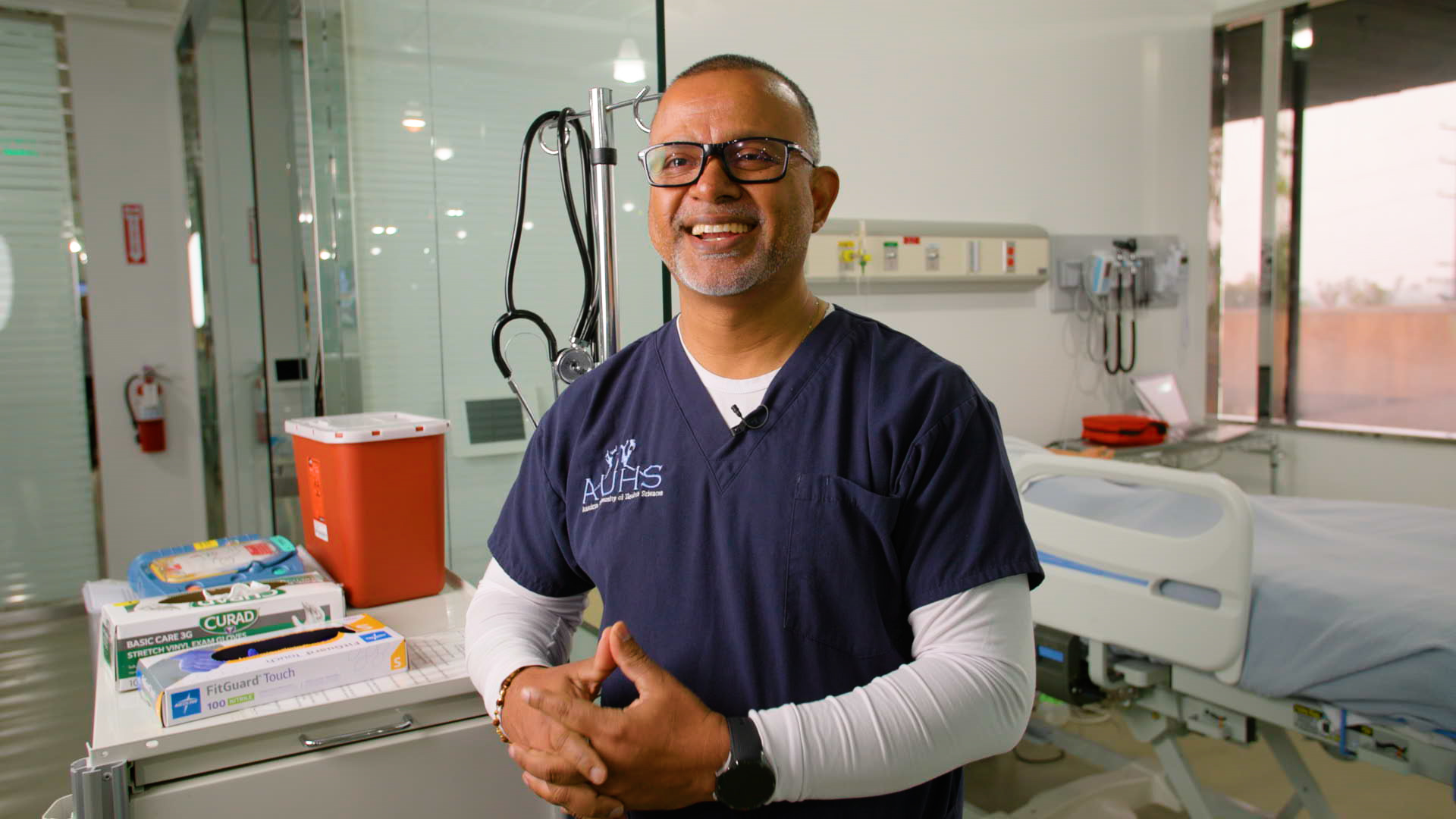Theology of Stress: A Very Preliminary Discussion
By Brent Davis, Campus Ministry Coordinator
Adam and Eve were pretty stressed: they had been kicked out of Eden, and their beloved Abel had been murdered by their oldest son. Probably, stress had become trauma. What does the Bible have to say about stress? When we attempt to develop theology, the concept we are investigating may arise from the text (e.g., what is ‘grace’) or from our present context (such as what about social media). In either case, since the Bible is the revealed word of God, it must be, rightly interpreted, a source of truth about the topic that we can use to guide our behavior. The difference is that, in the first case, we don’t have a clear understanding of the concept, whereas in the other, we don’t have a clear understanding of how Christians should deal with an issue. Truth then leads to right belief, and then by applying our reason, we can make good decisions leading to right practice. How could a theology of stress help us deal well with stress?
Dr. Szabo’s mentor, Hans Selye, discovered a syndrome that he later called the stress response (Selye, 1936; Szabo, Tache, & Somogyi, 2012). The Bible does not use the word stress (since the concept arose in the 20th century), but there are descriptions of people in the Bible clearly experiencing stress: “And being in agony He was praying very fervently; and His sweat became like drops of blood, falling down upon the ground” (Luke 22: 44). The word ‘agony’ comes from the Greek ‘agonia’ and can be translated as ‘distress’ or bad stress. So, part of the difficulty is a problem of labels. Jay Adams (1979) does not discuss stress, but he has a section on suffering, which he then links to pain. The problem of pain is a classic issue in theology: see, for example, The Problem of Pain by C. S. Lewis. Pain, though, is too broad a label for stress, although there is a great deal of overlap. Stress is focused on physiology and can be triggered by the threat of pain, i.e., anxiety. On the other hand, there is eustress, which relates to one’s perception of the outcome of the stressful event. If a good outcome is expected from the challenge, then it can be good, as in ‘no pain, no gain.’

Will there be stress in heaven? I think not. There will be no pain: “He will wipe every tear from their eyes, and there will be no more death or sorrow or crying or pain. All these things are gone forever” Revelation 21: 4). Without the threat of pain, there would seem to be no need for the type of arousal observed in the stress response. Further, our physiology will undoubtedly be quite different in the New Creation which should keep physiologists busy for a few centuries!
Types of Stress. Before we can answer the question of how a Christian should view stress from a biblical perspective, we need to note that it depends on the type of stress we are talking about. The initial stress response, like the sensation of pain itself, can save us from injury and is thus very useful. Some types of stress are maladaptive. Consider this categorization by Chu et al.:
Stress is categorized into various types based on duration, source, and response.
- Acute stress: The short-term stress that typically results from immediate stressors or challenging situations. The body’s fight-or-flight response leads to temporary physiological changes such as increased heart rate and adrenaline release.
- Chronic stress: This occurs when the stressor persists over an extended period. Prolonged exposure to chronic stress can lead to cumulative physiological and psychological effects, increasing the risk of health problems such as cardiovascular disease, anxiety, and depression.
- Episodic acute stress: The stress occurs when individuals experience frequent episodes of acute stress. This pattern may be characteristic of individuals who lead chaotic or disorganized lifestyles, constantly facing deadlines, commitments, or interpersonal conflicts. The cycle of stress exacerbates health issues and impairs daily functioning.
- Traumatic stress: This type results from exposure to traumatic events, such as natural disasters, accidents, or violent acts. The trauma overwhelms an individual’s ability to cope and may lead to symptoms of posttraumatic stress disorder (PTSD), including intrusive memories, avoidance behaviors, and hyperarousal.
- Environmental stress: This type arises from adverse or challenging conditions in one’s surroundings, including noise, pollution, overcrowding, or unsafe living conditions. These stressors can have detrimental effects on physical and mental health, contributing to a sense of discomfort or unease.
- Psychological stress: The stress stems from cognitive or emotional factors, such as perceived threats, worries, or negative thoughts. Typical stressors include work-related pressures, academic expectations, social comparisons, or self-imposed demands. Manifestations include anxiety, rumination, or perfectionism.
- Physiological stress: Physiological stress refers to the body’s response to internal or external stressors that disrupt homeostasis. Examples include illness, injury, sleep deprivation, or nutritional deficiencies, which activate physiological stress pathways and compromise health and well-being.[3][4][5][6] (Chu, Marwaha, Sanvictores, Awosika, & Ayers., 2024)
Most of these types are not good for human wellbeing. Tyler VanderWeele describes the effects of stress thusly in his Theology of Health (p. 153):
2.3f. The trials of life lead to strain and distress, which constitute and result in ill health. The fallenness of the body and of the mind, of social relations, and of the world around us creates conditions that continually threaten human life. Life becomes subject to stresses and struggles for survival. These further strain human relations and strain the human body and mind. The stresses and struggles that result from the fallenness of the relation between human persons and creation both arise from and contribute to ill health, ill health of the body, and ill health of the person. The fallenness resulting from sin is manifest in the world around us and is ultimately reflective of and the consequence of sin. That sin, and the fall from the original state of goodness as God intended, now pervades all aspects of the life of the human person, human society, and the world humans inhabit. Sin, through the fall, is the cause of ill health not simply as the direct consequence of individual action but also through the present fallenness and brokenness of human nature and of our relationship to creation. (VanderWeele, 2024)
What does the Bible tell us to do to effectively deal with intense or prolonged stress? Chris Coursey (2021) recommends turning on our joy circuits. This is in accord with scripture: “Consider it pure joy, my brothers, when you encounter trials of many kinds,” (James 1:2, Berean). Joy is a fruit of the Spirit (Galatians 5: 22) and fruit takes time to develop. We need to move from conformity to the world’s way of thinking which leads to stress to a transformed mind—the mind of Christ (Romans 12: 2; 1 Corinthians 2: 16). This is a process similar to Cognitive Behavioral Therapy (see Pearce et al. (2015) for example). When we are tempted to become stressed due to fear and anxiety, we can remind ourselves that:
I will never leave you nor forsake you (Hebrews 13: 5)
The Lord is my shepherd; I shall not want (Psalm 23: 1)
Thou wilt keep him in perfect peace whose mind is stayed on you (Isaiah 26: 3)
In everything, give thanks (1 Thessalonians 5: 18)
Rejoice evermore (1 Thessalonians 5: 16)
When you feel stressed, think that Jesus is with you and is caring for you. Take a deep breath. Rejoice.
References
Chu, B., Marwaha, K., Sanvictores, T., Awosika, A. O., & Ayers., D. (2024, May 7). Physiology, Stress Reaction. Retrieved from National Librarty of Medicine: https://www.ncbi.nlm.nih.gov/books/NBK541120/
Coursey, C. (2021). The Joy Switch: How Your Brain’s Secret Circuit Affects Your Relationships–and How You Can Activate It. Northfield Publishing.
Pearce, M. J., Koenig, H. G., Robins, C. J., Nelson, B., Shaw, S. F., Cohen, H. J., & King, M. B. (2015). Religiously integrated cognitive behavioral therapy: a new method of treatment for major depression in patients with chronic medical illness. Psychotherapy (Chicago, Ill.), 52(1), 56–66. https://doi.org/10.1037/a0036448
Selye, H. (1936). A syndrome produced by diverse nocuous agents. Nature, 138(3479), 32. https://doi.org/10.1038/138032a0
Szabo, S., Tache, Y., & Somogyi, A. (2012). The legacy of Hans Selye and the origins of stress research: a retrospective 75 years after his landmark brief “letter” to the editor of Nature. Stress (Amsterdam, Netherlands), 15(5), 472–478. https://doi.org/10.3109/10253890.2012.710919
VanderWeele, T. J. (2024). A theology of health: Wholeness and human flourishing. University of Notre Dame Press.












